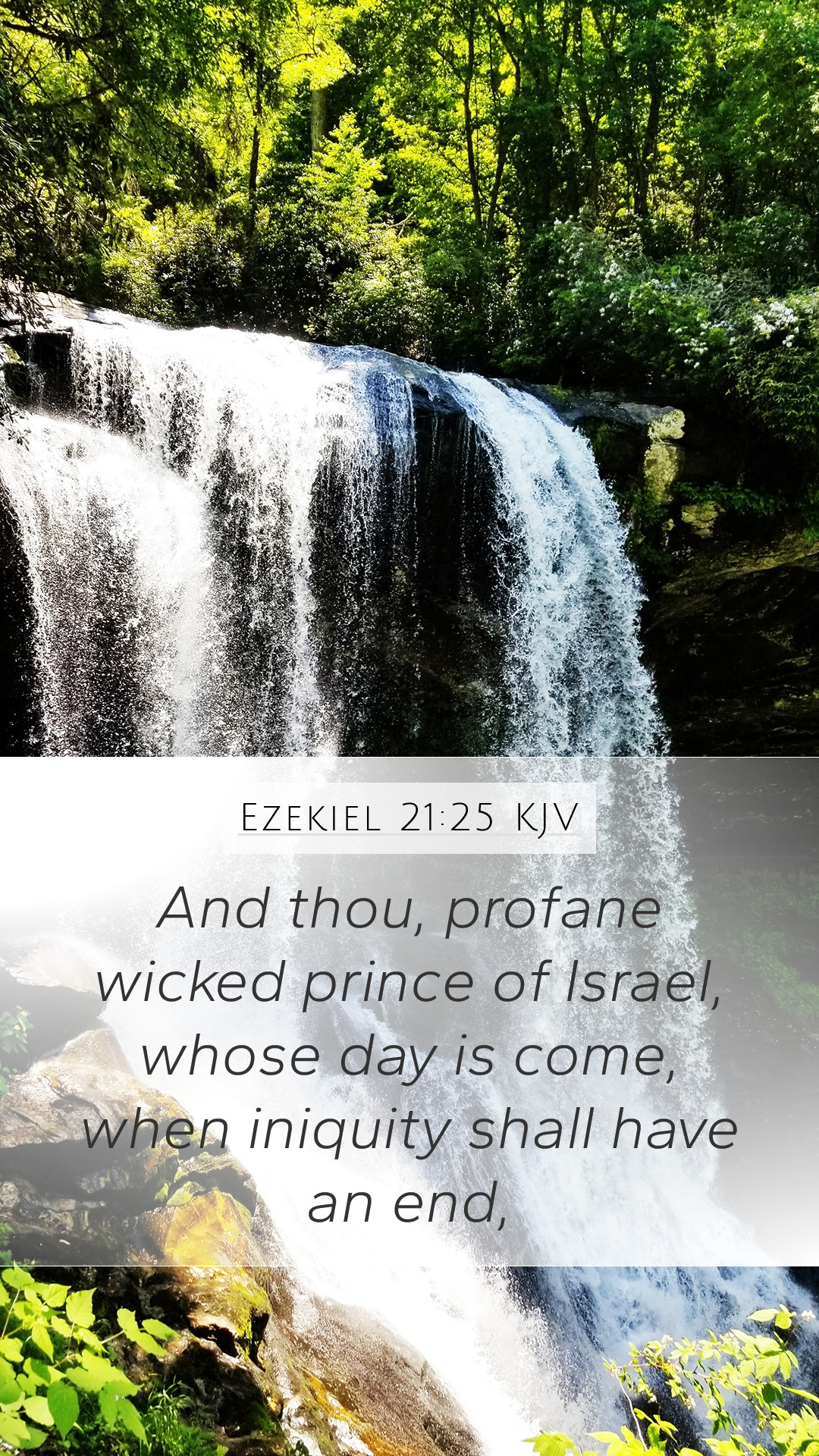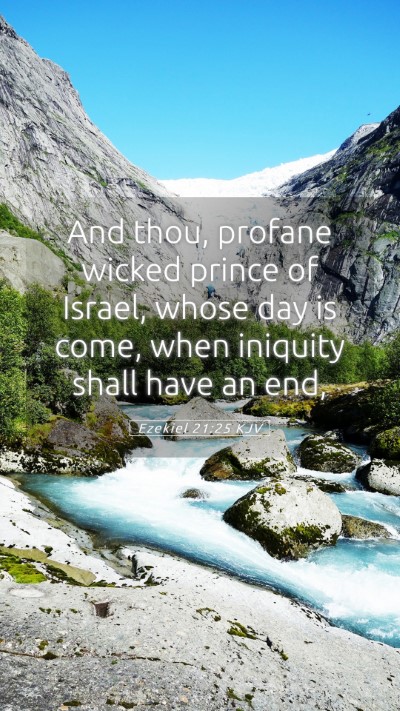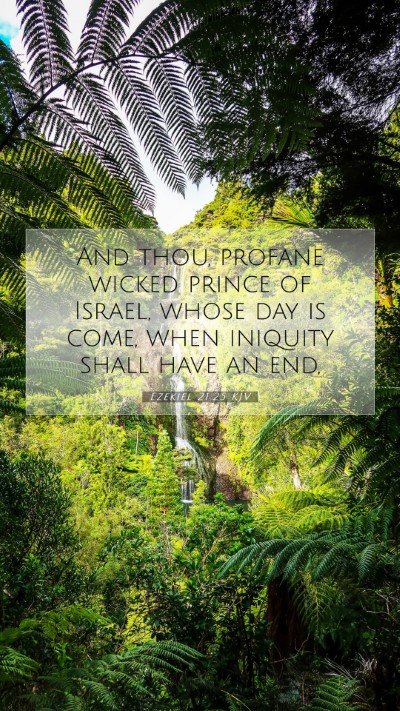Understanding Ezekiel 21:25
Bible Verse: Ezekiel 21:25 (KJV) - "And thou, profane wicked prince of Israel, whose day is come, when iniquity shall have an end."
This verse occurs in the context of God's judgment on the leaders of Israel, showcasing the theological themes of divine justice and accountability. Below, we present insights from renowned public domain commentaries, interpreting the meaning of this verse.
Overview of Commentary Insights
This verse serves as a condemnation of a corrupt ruler, specifically targeting a leader who has led the people astray. It implores the reader to understand the seriousness of leadership and the consequences of leading others into sin. Let's delve deeper:
-
Matthew Henry Commentary:
Henry emphasizes the Lord's anger against the profane leaders of Israel. He notes that even though the prince in question may appear powerful or influential, his fate is sealed due to his wickedness. This highlights the biblical principle that no one is above divine judgment, and God will ultimately hold leaders accountable for their actions.
-
Albert Barnes' Notes:
Barnes interprets this prince's judgment as symbolic of Israel's larger societal collapse. He discusses how this individual’s corruption impacts the nation and serves as a precursor to coming judgment. By abusing power, this ruler not only corrupts his own soul but also tarnishes the spiritual integrity of the nation, ultimately leading to God’s decree of an end to iniquity.
-
Adam Clarke's Commentary:
Clarke provides insights on the term "profane," detailing the prince's desecration of God’s holy order through his actions. He notes that this verse stresses the inevitability of divine retribution. Clarke connects the prince’s demise with God’s commitment to justice, portraying a God who will not tolerate the ongoing wickedness of leaders.
Thematic Insights
The main themes present in Ezekiel 21:25 include:
- Divine Judgment: The verse emphasizes that no one escapes the reach of God’s justice, regardless of earthly status.
- Accountability of Leadership: It addresses the heavy responsibility that comes with leadership and the catastrophic impact of failing to uphold righteousness.
- End of Iniquity: It signifies a culmination of sin, indicating a turning point for Israel where God's mercy gives way to necessary judgment.
Application of Ezekiel 21:25
This verse encourages readers to reflect on the nature of authority and accountability. It serves as a reminder for contemporary leaders—whether in a religious, political, or personal context—to conduct themselves with integrity and to lead with righteousness, lest they fall under similar judgment.
Cross References
- Ezekiel 18:30 - A call to repentance for Israel to turn from their sins.
- Jeremiah 23:1-2 - God’s denunciation of irresponsible shepherds of His people.
- Matthew 12:36-37 - The importance of being accountable for our words and actions.
Conclusion
In summary, Ezekiel 21:25 serves as a poignant reminder of the consequences of wicked leadership and the assuredness of divine judgment. Through this verse, one can gain valuable insights into the importance of righteousness in leadership roles and the serious nature of inciting God’s wrath through corruption.
For those engaging in Bible study, this verse provides a rich foundation for discussing themes of justice, leadership, and accountability. By understanding these implications, believers can better reflect on their conduct and the principles guiding their communities.


